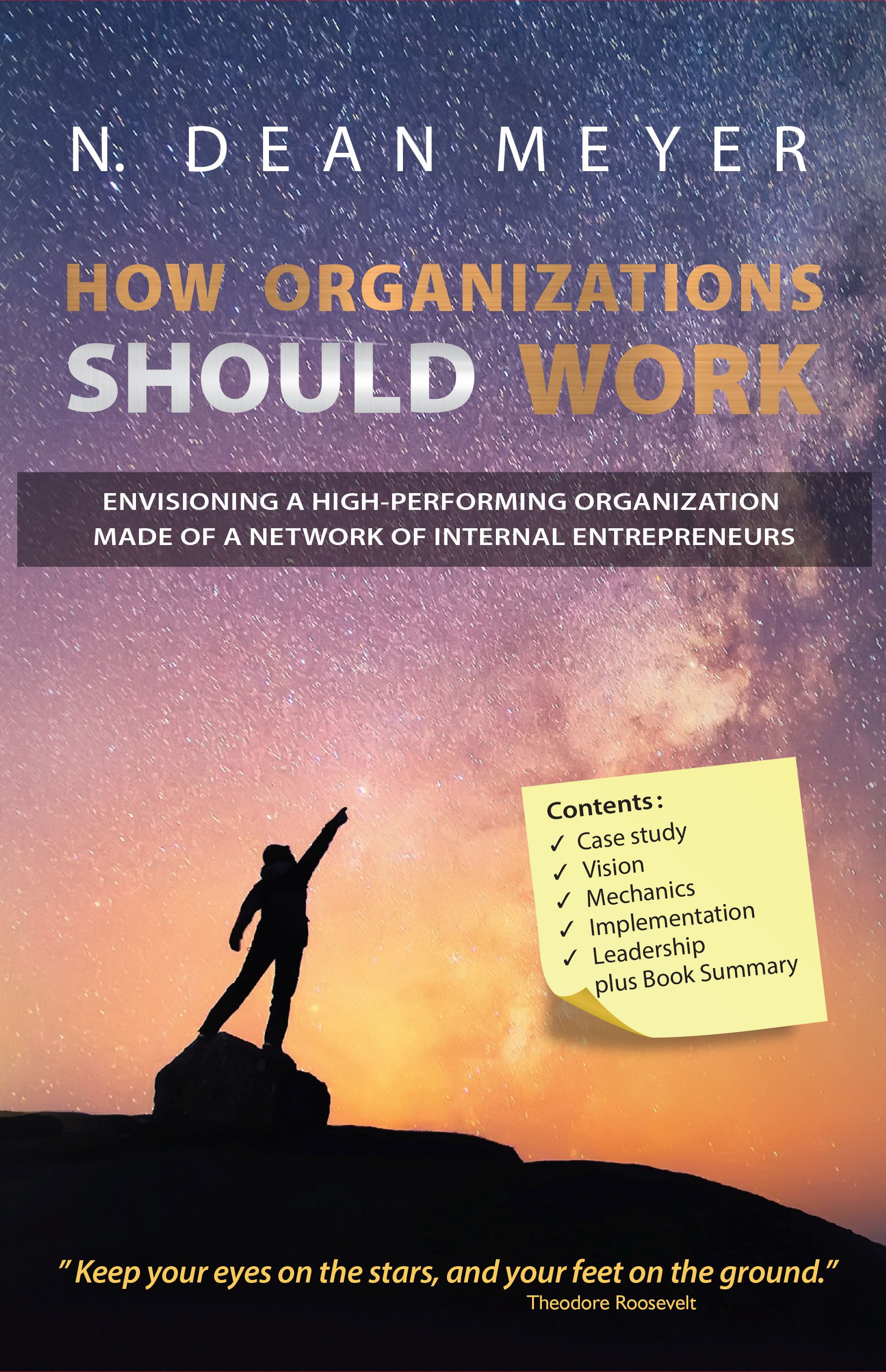Excerpt from www.NDMA.COM, © 2026 N. Dean Meyer and Associates Inc.

NDMA Approach
our philosophy and approach to consulting
NDMA (N. Dean Meyer and Associates Inc.) is a research, publishing, and consulting firm focused exclusively on designing organizational ecosystems (organizational operating models). Our scope includes:
NDMA's approach to consulting is unique in two ways: the philosophy on which our work is based, and our style of consulting.

Philosophy of Organizational Engineering
Great leaders don't just drive strategies and deliver results. They leave the legacy of fundamentally well-designed organizations that perform brilliantly long after they've moved on.
Those high-performing organizations are efficient, reliable, safe, strategically aligned, customer focused, innovative, and infinitely scalable. They earn the position of supplier of choice to their customers (internal and external), and employer of choice because they attract, inspire, leverage, and retain great talent.
There are three aspects of our philosophy that are foundational:
- Vision: We help executives develop high-performing organizations based on the business-within-a-business paradigm, where every manager thinks and acts like an empowered entrepreneur running a small business. It's customers are others within the organization and beyond.
This brings out the best in people -- customer focus, accountability for results (products and services), frugality, innovation, and cross-boundary teamwork through internal customer-supplier relationships.
- Systemic change: It's a waste of time and energy to solve the same problems again and again. Instead, problems should be traced to their root causes and addressed systemically, once and for all.
Transformational leaders focus on organizational strategy before business and technology strategies. An organizational strategy identifies and treats dysfunctions in the organizational ecosystem in which we work -- systemic issues that cause great people to perform poorly.
It builds an organization that can conceive and execute business and technology strategies continually, forevermore.
- Principles: NDMA treats the design of organizational systems as an engineering science -- firm principles and clear frameworks that NDMA has coalesced over the course of four decades.
These tenets guide every aspect of organizational design.
Consulting Style
We're also committed to a unique style of consulting:
We believe it makes no sense to pay a consultant to study what you already know, and then make your decisions for you. And yet, that's the traditional consulting model. A team of junior consultants analyzes your situation, and then writes a report with recommendations (most of which involve additional consulting services to implement them).
We believe a better role for consultants is to share what they know, and guide you through a process of making your own decisions -- that is, to teach and facilitate rather than study and prescribe.
With this approach, the consultant must be an expert in organizational engineering. His/her first job is to teach you and your leadership team the relevant principles and frameworks.
The consultant should also be experienced in implementation processes, and able to guide you and your leadership team through proven, step-by-step processes that lead you to make your own decisions, in the right order, and to implement those decisions yourself.
Junior consultants just out of business school can't do this. Participative change processes requires that you work directly with the "guru."
This teach-and-facilitate approach has many advantages:
- Decisions are based on the in-depth knowledge of your leadership team.
- Participation builds commitment, since people will support implementing decisions they made.
- Leaders gain a deep understanding of the changes, which is necessary for them to adopt them and lead the rest of your staff to work in new ways.
- It's generally less costly to hire even a very senior expert to personally guide you through change processes, as compared with hoards of junior consultants who spend months studying and analyzing you, selling you on their recommendations, and then doing much of the work to implement those recommendations.
- You avoid ongoing dependence on consultants. Good consultants work themselves out of a job by building self-sufficient leadership teams.
What's the down-side? Real change comes from within; but you and your leadership team have to invest the time to drive it.
"When you're up to your neck in alligators,
it's easy to forget you came to drain the swamp." |
| 1970s adage |
You'll have to divert time from "managing" to "leading" -- from guiding projects, making tactical decisions, and overseeing staff, to building your organizational ecosystem -- from fighting alligators to draining the swamp.
We've found that most leadership teams rise to the occasion. In fact, numerous executives have cited a collateral benefit of forcing senior managers to delegate more, reducing micro-management, enhancing strategic thinking, and developing the next generation of leaders.
|


